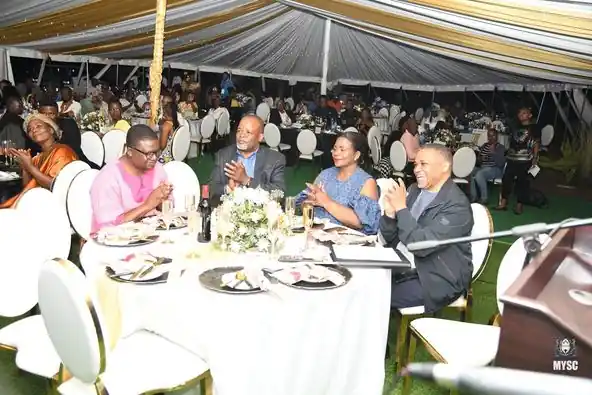Botswana: First Lady of Botswana, Neo Jane Masisi attended the annual Bobirwa Culture Day celebration in Bobonong. The first lady is a native of the regions and has attended the cultural event several times.
During her attendance, First Lady Masisi, underscored the significance of Culture Day as a platform for preserving and showcasing Botswana’s diverse culture. She highlighted that these gatherings play a crucial role in connecting communities with their heritage.
The First Lady expressed that she is blessed to be a part of a country that allows for gatherings where culture is celebrated freely. The Bobirwa Culture Day celebration was hosted under the theme, “History and Heritage – Bobirwa Our Pride.”
The First Lady reflected on the theme of this year’s event and stressed the importance of honouring the values and stories that define the Bobirwa community. She highlighted that Culture Day offers an opportunity to celebrate and pass down traditions to future generations.
This in turn helps the members of the community in reinforcing a shared sense of identity and pride.
As a native of the region, the First Lady described the event as a homecoming. She said that she has a personal connection to Bobirwa and was happy to be a part of the cultural celbration.
She highlighted the Babirwa people’s distinct cultural identity, traditional foods like bogobe and phane, and the iconic sebirwa dance. The First Lady called on attendees to cherish these traditions and continue to promote them.
Deputy Permanent Secretary (Policy Implementation) in the Ministry of Youth, Gender, Sport and Culture, Tshepo Mophuting was also a part of the celebration. He emphasized the Ministry’s pivotal role in safeguarding and preserving Botswana’s Intangible Cultural Heritage.
He highlighted that through funding and support from UNESCO, MYSC empowers communities to protect their living heritage, evidenced by the preservation of Seperu and Dikhwaere dances.
The celebration was marked by vibrant traditional dances, music, food, and cultural demonstrations by the residents from various regions. This serves reflecting the rich cultural landscape of the Bobirwa community. The event was also attended by Kgosi ya Babirwa from South Africa, Kgosi Modipane Tsoma Phashe.
Their attendance is also a significant proof of the deep-rooted connections among Babirwa people across borders,

